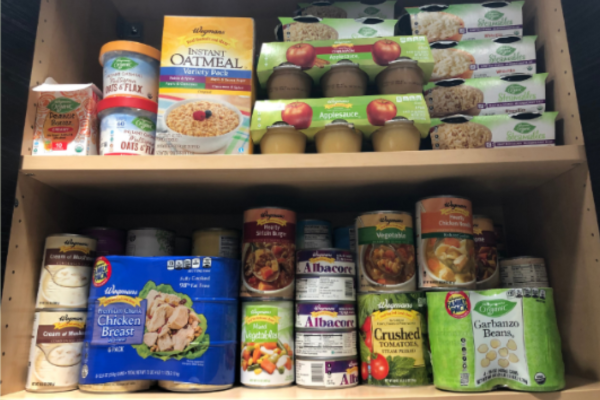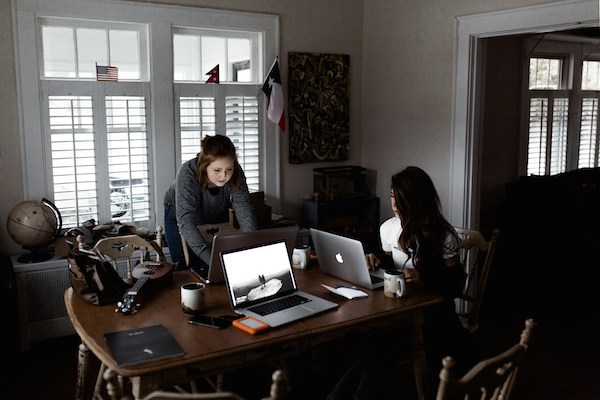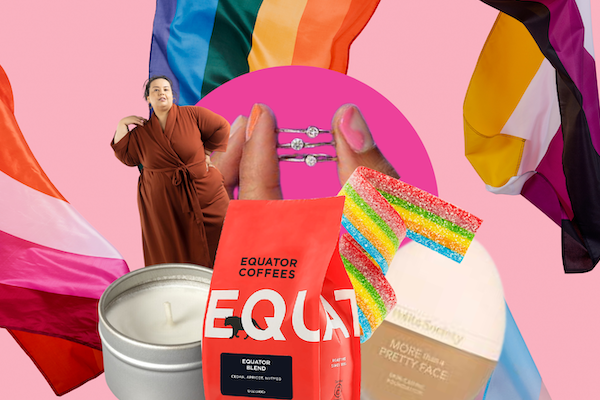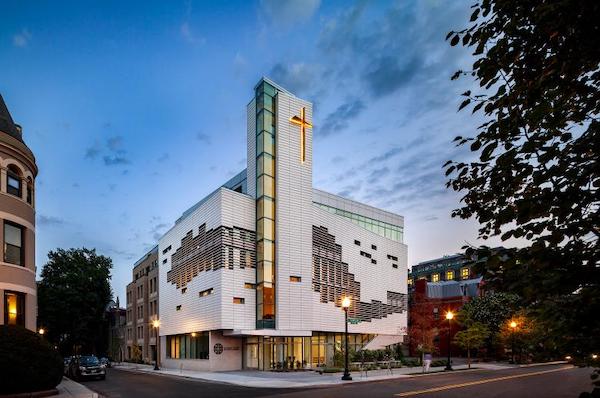
9 Social Media Accounts Bringing LGBTQ+ History to Your Feed
October 28, 2023
Exploring 70 Years of Lesbian Publications: From 1940s Zines to Modern Glossy Magazines
November 1, 2023The D.C. LGBTQ+ Community Center’s new collaboration with regional supermarket chain Wegman’s highlights food insecurity within the LGBTQ+ community and how Washington D.C. advocates are working to fight against it.
One in four LGBTQ+ adults experience food insecurity, according to the Williams Institute. Kimberley Bush, Executive Director of the D.C. LGBTQ+ Community Center, says that food insecurity is one of the most pressing challenges for queer people.
“Just waking up brown, black, a woman, non-binary, trans, queer, can definitely be a barrier to equal and fair housing, equal and fair job opportunities, access to resources, which directly contributes to food insecurity,” Bush told Tagg.
Bush is leading the center’s new partnership with Wegmans. The supermarket chain will not only help supply food for the pantry but also provide nutritional cooking classes and support for their annual Thanksgiving dinner.
Bush says the pantry will be a “one-stop-shop” for those searching for a new home or a place to feel loved and accepted.
The COVID-19 pandemic has played a significant role in perpetuating food insecurity amongst the LGBTQ+ community. In a 2021 study by the Williams Institute, 20 percent of transgender individuals experienced food insecurity, compared to eight percent of cisgender adults. Moreover, LGBTQ+ people of color experienced food insecurity three times more than their white counterparts.
Bush notes that she sees the everyday implications of these statistics at their food pantry. And in addition, rarely have the resources and opportunities for things like food allergy testing to ensure the safest and healthiest options.
“Our brown, black, LGBTQ+ siblings who come into the center in search of food are exactly those members of our community,” says Bush.
LGBTQ+ individuals’ ability to access nutrition programs and food pantries can be difficult, according to Alex Ashbrook, Root Causes and Specific Populations Director for the Food Research and Access Center.
“The paperwork necessary to apply for programs may require someone to select an option that does not match their gender identity or a food pantry may be located in a faith-based institution that does not welcome or feel welcoming to LGBTQIA+ people,” Ashbrook wrote in a statement to Tagg.
Bush says their pantry is made for this exact reason.
“We need a safe and affirming space to come to receive vital life and human services,” Bush notes. “It is paramount that we have access to healthy foods at no cost to our people.”
In Washington, D.C., individuals in Ward 7 and 8, the largest majority Black neighborhoods, face disproportionate access to grocery stores.
“There is only one full-service grocery store – a Giant on Alabama Ave – for 73 thousand residents compared to Ward 3, with 16 full-service grocery stores for 77 thousand residents,” Ashbrook said, citing a study conducted by D.C. Hunger Solution.
Bush says that the pantry will work to target residents in these Wards and help provide them access to the center’s resources.
“We want to make sure that all of our LGBTQ+ siblings in those Wards continue to be informed about our food pantry, as well as the upcoming educational opportunities we are planning,” Bush states.
To support food security amongst the LGBTQ+ community, Ashbrook urges individuals to support the Equality Act — a bill that protects against discrimination based on gender and sexuality — and connect LGBTQ+ people to federal nutrition programs.
For Bush, she is confident that their new space will help create a “healthy spirit that will feed them and feed their day to be able to wake up again and have a fighting chance of not only surviving but thriving.”
The LGBTQ+ D.C. Community Center’s pantry will be launched at its new location, 1827 Wiltberger St. NW, Washington, D.C. on an undetermined date.





